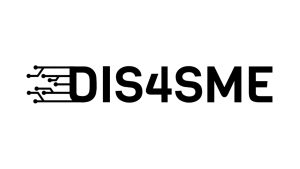Best practices
Use of the EDCI Issuer to issue micro-credentials
Users: Training Providers (Private), Training Providers (Public) | Theme: Accreditation and certification | Action: Fremework/methodology | Beneficiaries: Training Providers (Private), Training Providers (Public), Learners (STEM background), Learners (Non-STEM background).
As a consortium member, Epsilon Italia aimed to ensure that the learning outcomes achieved by participants in its courses were recognisable, verifiable, and aligned with EU policy frameworks for micro‑credentials.
The challenge?
The main challenge was to identify a cost‑effective and reliable system for issuing digital micro‑credentials compliant with the EU Recommendation on Micro‑Credentials.
Most commercially available badge platforms were found to be limited in one or more of the following ways:
Non‑compliance with the EU micro‑credentials framework
Requirement for expensive licences or annual fees
Dependence on restrictive national accreditation or proprietary systems
These limitations hindered training providers from adopting micro‑credentials effectively and consistently across European contexts.
Our solution
Secure, authentic, EU‑compliant credentials: the Digital badges issued via the EDCI Issuer are fully aligned with the EU micro‑credentials framework and guaranteed by a qualified e‑seal.
Interoperability and transparency: Credentials can be embedded directly in the Europass CV, enhancing recognition of skills across Europe.
Cost‑effectiveness: Epsilon Italia achieved credential issuance without paying licence fees or using proprietary systems.
Scalability: The organisation plans to issue at least 100 digital credentials during the first year of implementation.
Outcomes
The membership to the EFMD Global Network, and the eligibility to EQUIS accreditation were the first steps achieved in the process of EQUIS accreditation. The achievement of these milestones resulted in a set of outcomes:
- 15% increase in recruitment of international students;
- 1 new international exchange program with an EQUIS internationally accredited HEI;
- International recognition in accreditation of educational offer in advanced digital skills, with one new co-funded project with other EQUIS accredited HEIs;
- Improvement in national and international ranking for master programs
- Integration of EQUIS methodology with European approach to micro-credentials to further increase the quality level of educational offer.
Key takeaways
- Integrate a qualified e‑seal, as required by the EDCI Issuer, to ensure legal authenticity and integrity.
- Update internal processes early to guarantee smooth technical integration with the EU’s credential infrastructure.
- Invest in staff training for managing digital credentialing workflows and maintaining compliance with EU standards.
- Avoid dependence on commercial badge platforms by adopting open EU‑provided tools that foster transparency and trust.
- Embed credentials within the Europass CV to enhance learners’ employability and cross‑sector recognition.
- Build long‑term collaboration with technical partners to sustain e‑seal management and alignment with evolving EU frameworks.

